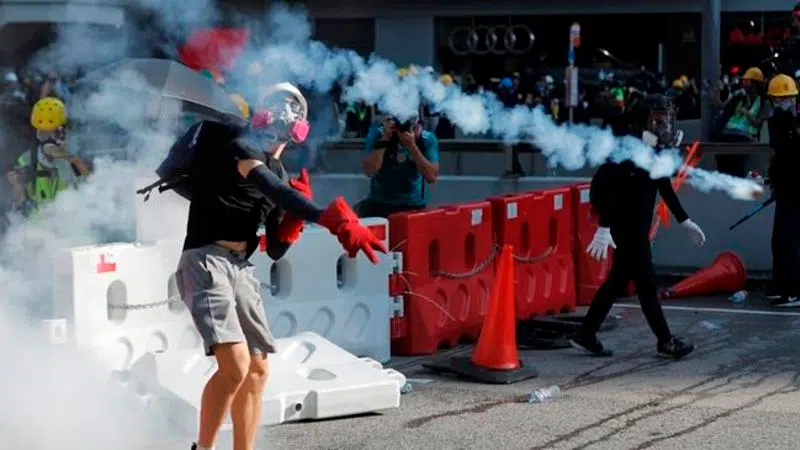
A day of striking sows chaos across Hong Kong
HONG KONG — A general strike in Hong Kong descended into citywide mayhem Monday as defiant protesters started fires outside police stations and hurled bricks and eggs at officers. After disrupting traffic early in the day, they filled public parks and squares in several districts, refusing to disperse even as police repeatedly fired tear gas and rubber bullets from above.
While previous large rallies over the past two months of anti-government protests have generally been held on weekends, Monday’s strike paralyzed city operations in an effort to draw more attention to the movement’s demands.
Hong Kong is on “the verge of a very dangerous situation,” said Chief Executive Carrie Lam, who insisted that she has no plans to resign.
Lam said at a news conference that the protests had “ulterior motives” that threaten Hong Kong’s prosperity and security. “I don’t think at this point in time, resignation of myself or some of my colleagues would provide a better solution,” she said.


